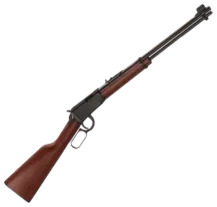Judge Jamie Guiney has selected “God, Guns, and Baseball” by Lena (Sunada-Matsumura) Newlin as the Best Essay for the 2025 Best in Rural Writing Contest. Listen to Lena read her submission below.
The audience helps choose the winner between the Best Short Story and Best Essay for the overall winner of the Best in Rural Writing Contest and the $500 prize. You can listen to and read Jamie Guiney’s choice for Best Short Story, “The Escapee’s Lover” by Dennis McFadden, here. You can vote at the end of either entry. Voting will remain open until December 15th, midnight GMT.
God, Guns, and Baseball by Lena (Sunada-Matsumura)
Click here if video doesn’t play: https://www.youtube.com/watch?v=HDJIctyBSXA
I found my fourth grade class picture from 1986.
Aside from the graininess of the photo and the feathered hairstyles on some of the girls, it could be hard to distinguish that the photo is more than thirty-five years old. Sure, the world has made huge technological advances with the invention of digital cameras and iPhones and e-vehicles, but the reality is that fourth graders in 1986 looked about the same as fourth graders in 2024. I know this because I have a fourth grader right now, and his class picture looks pretty much like my fourth grade class picture.
It’s an awkward age, right? Kids aren’t as tiny and innocent-looking as they were in kindergarten, but there isn’t the full-on drama and hormones of middle school just yet. My son swears that he doesn’t “like” anyone, but tells me that “M and S are in a relationship” even though he can’t say what exactly that means. And still, about once every three weeks, he runs into my bedroom in the middle of the night with his arms full of stuffed animals and crawls under the covers with me because he’s had a bad dream.
In both photos, there are kids with long shirts tucked into their high-water pants, kids with glasses and moppy haircuts. In both photos, the teachers stand awkwardly to the side. Facial hair has actually come back into style for men, so my fourth grade teacher, Mr. R, with his bushy beard, doesn’t look all that different from my son’s fourth grade teacher, Mr. B, and his bushy beard.
Looking at my old photo brings back a lot.
There’s Sara, my best friend. She’s wearing a “Book It” pin. It was a program that offered incentives for reading and culminated with a personal pan pizza from Pizza Hut and a button. Sara must have been pretty proud of her achievement to have worn it on picture day.
The girl on the right, in the back row—Kathleen—stands a whole head taller than every kid—boy or girl—in the class. Other kids eventually caught up to her height, but for several years, she towered over everyone else. In my son’s school picture, there are four really tall girls and they’re all standing in the back row.
I may have had a little crush on Justin, in the third row. I can still see him, his baby face hidden behind his big wire-rimmed glasses. We were paired up at an ice cream social once and I remember being too shy to say anything, so I stuffed my face with ice cream. I’m sure he would have rather been eating ice cream and playing Dukes of Hazzard with his best friend, Geoff, standing in the front row.
I’m in the back row, at the top. It was my first and only time not being in the front row (I was always one of the shortest kids in class), and my huge toothy smile is evidence of how happy I was to be standing in the back. I’m wearing a white blouse that, I swear to God, had to have been the inspiration for Jerry Seinfeld’s puffy pirate shirt seven years later.
In the front row, where I usually stood in class pictures from earlier years, is Jeffrey. He’s wearing jeans and a long-sleeved flannel shirt. He’s holding the felt sign that we used before digital technology could photoshop in class details. It says: Ashgrove Elementary School, Grade 4, April 29, 1986. Jeffrey had the best Donald Duck impression that made everybody laugh.
***
I didn’t come from a baseball family, so it took me by surprise one evening when my son was six, and he saw a baseball game on TV and announced that he wanted to play that. I looked up our local Little League website and got him registered. A neighbor gave us a little glove that she found in her shed that used to be her son’s. I have a video of his first practice. It’s the most adorable thing: he spins in a full circle when he bats, and his very patient coach shows him how to swing without looking like a ballet dancer.
My son now wants to be a professional baseball player when he grows up. I guess that’s not uncommon for kids his age. But he’s nine, and like his mom, is one of the shortest kids in his class. So while I don’t want to crush his Major League dreams, my parenting priority is to give him the opportunities to play competitively, if that’s what he wants, but focus more on him being a well-balanced athlete, student, and human being.
Last year he tried out for the competitive travel baseball team that’s run by volunteers and a local nonprofit organization. They’re called the Regulators. He made the team.
***
Ashgrove Elementary is in Riverton, in central Wyoming. Riverton’s population, which hovers around ten thousand, hasn’t changed much since my fourth grade photo. And neither has its people; I still run into former classmates, teachers, neighbors, and friends every time I return—in Walmart and at the local sandwich shop. My family roots in Wyoming go back four generations, and I’m raising my kids in southeastern Wyoming, in Laramie, home of the University of Wyoming Cowboys, whose motto is “The World Needs More Cowboys.” The state is the least populated in the country, with 580,000 residents. Local lore is that we have more antelope than people, and I believe it.
According to an online ammunition website whose “ammo comes with a side of freedom,” and who donates 1% of their sales to “pro-freedom organizations” like the NRA and the Second Amendment Foundation, Wyoming leads the country with the most guns per capita, at 245.8 firearms per thousand residents. I’m not sure how they get those numbers, but anecdotally, having lived in Wyoming for most of my life, it seems like an extremely low estimate. My guess is that, like antelope, there are more guns in the state than there are people. We also have some of the least restrictive gun laws in the nation, with (according to the NRA-Institute for Legislative Action) no permit required to purchase rifles, shotguns, and handguns; no required registration of firearms; no licensing of owners; and no permit required to carry rifles or shotguns.
Of course, hunting is a driving force behind gun ownership in Wyoming. Hunting is a big activity: elk, antelope, deer, pheasant, even mountain lion. People save up all their comp time at work to spend it during hunting season. They invest in 4WD diesel trucks and campers and expensive coolers to get them into the backcountry. It’s a community builder—friends talk about what tags and areas they put in for, what tags and areas they get. They help each other with the harvest and the processing of the animal, and they share the meat. For most people, it’s more than a sport; it’s sustenance. And in a state where more than 11% of households report struggling with food insecurity, hunting is also a necessity. Organizations and people come together to facilitate wild game donation to food pantries across the state.
Hunting is also a family activity—you can buy camouflage onesies in the sporting goods store, kids learn how to hunt from their parents and grandparents, and they plan vacations around it. It’s an intergenerational family tradition. And hunting in Wyoming isn’t just for men. A Wyoming women’s advocacy organization puts on an annual antelope hunt just for women that “emphasizes hunter safety, hunting and land ethics, and the conservation and the proper management of wild natural resources.”
But Wyoming residents are gun owners for reasons other than hunting, too.
***
At the beginning of the first game of my son’s Little League season last year, the announcer called all players to the infield and told them to repeat the Little League Pledge:
I trust in God
I love my country
And will respect its laws
I will play fair
And strive to win
But win or lose
I will always do my best
From the stands, I watched my son, and all of the other kids, put their hand over their heart and recite the pledge.
My husband, an atheist, looked at me awkwardly.
“Play ball!” the announcer said and everybody cheered.
***
I can’t imagine that there are any parents anywhere that love doing fundraisers for their kids’ activities. Whether it’s selling Girl Scout cookies or chocolate bars, jump-a-thon or walk-a-thon or read-a-thon pledges, cookie dough sales, raffle tickets, bake sales, or anything else: fundraising for kid activities sucks.
What I especially hate about kid fundraisers is that anymore, they feel more like parent fundraisers. For better or for worse, the days of kids going door-to-door around the neighborhood to raise money are gone. Instead, parents do most of the work: we reach out to our co-workers and family through email or text messages, we post about it on our social media, we do the money exchanges (i.e. just Venmo me!). My husband’s co-worker put up flyers around his building with a QR code to his daughter’s Girl Scout cookie website. Customers never even got to see the cute, blonde hair, blue-eyed second grader to get their Thin Mints or Samoas. They just needed to scan the code, enter in their order and credit card, and then he would bring boxes of cookies to work a couple of weeks later. Easy peasy lemon squeezy.
But, wait…whose fundraiser was this?
***
I once saw a woman at the splash pad at our local park with a baby on one hip and a holstered pistol on the other. I didn’t know how to sincerely ask her about it without:
- Saying “what the fuck, lady!”
- Being afraid—would she get defensive and shoot me? Would her baby accidentally grab it? Shoot my kid? Shoot someone else’s kid?
I packed up my kids and towels and went home.
***
My son loves being on the Regulators team. And to be honest, despite all the time and money we spend driving him all over town and the region for practice and tournaments seven months a year, I love it too. The coaches are amazing, the kids on the team are sweet, the parents are supportive, and the whole baseball scene is just fun. The kids practice two to three days a week starting in January at the University of Wyoming football team’s indoor practice facility and then have batting practice at somebody’s shop. When the weather warms up, they practice outside and scrimmage against older Regulators teams. They go to tournaments in Nebraska and Colorado and Wyoming until the end of their season in July. On top of the Regulators, for about two months during the spring, my son also plays on a Little League recreational team. It may seem obsessive for a nine-year-old, but he loves it. He’s made a bunch of friends that love baseball just as much as he does, and he’s gotten a lot better at the game. It’s been great. Mostly.
He came home from practice one day and reported that he was going to have to do a fundraiser for his team. They would talk about it next practice and parents would get more information sent to us. “Okay,” I said. Ugh, another one?
We had just gotten done with a fundraiser for his team that was selling squares for picks on a Super Bowl card. Each square cost $20, and at the end of each quarter of the game, someone would win $250 based on the score. I had my son write a letter asking for donations and I emailed it to friends and family and posted it on my social media. I think we ended up selling four or five squares. Nobody from our sales won the cash.
***
My grandfather purchased a single-shot Winchester .22 during the depression and prohibition era. He bought it for seven dollars with money he saved from selling bottles to bootleggers for a nickel a piece. He learned to shoot rabbits and this is how he helped feed his family in southwestern Wyoming. That gun, and later the US Army, taught him the skills he would use to fight the enemy in Italy during WWII, where he would earn a Purple Heart and a Bronze Star Medal, and posthumously, a Congressional Gold Medal.
After Japan bombed Pearl Harbor, the US government went looking for Japanese spies in the US. My grandfather was born and raised in America, but his parents had emigrated from Japan. The FBI raided his home and asked him if he knew how to shoot. He said, “I’m from Wyoming. What do you think?” They took his gun away.
***
Lynyrd Skynyrd, recognized by Rolling Stone Magazine as one of “100 Greatest Artists of All Time,” in their 2009 title track God and Guns, sings about what America was founded on, about the working man, about how the peacemaker in our dresser drawer keeps us strong, and about how politicians don’t understand because they didn’t grow up at the local hunting club. In their southern/country rock style with raspy and twangy voices, they fist pump, point at the sky, and sing, “Don’t let ‘em take our God and Guns.”
And the crowd goes wild.
***
During this year’s Wyoming Legislative session, a bill to repeal most gun-free zones in the state and allow concealed carry in schools and other public places made it to our Republican governor’s desk. After already signing four other “Second Amendment-friendly bills,” in a controversial and contentious move, he vetoed it.
The Wyoming Freedom Caucus condemned the governor’s decision, releasing a statement:
“The Governor parrots laughable, confusing arguments apparently crafted for him by those who have no understanding of God-given rights. We know that this right comes from our Creator, not from the government.”
***
We held a garage sale and my son decided to sell two of his nerf guns. A woman bought them both for $15. “One is for my son, and the other one will be a prize for a church activity we have coming up,” she said. She smiled sweetly as my son gave her instructions on how to load and shoot them.
***
This past fall, a friend who also has a fourth grade son called me on a Sunday evening:
“I wanted to let you know that [a boy] threatened to bring a gun to school and shoot [my son]. We are going to keep [my son] home tomorrow until we feel like he’s safe and it’s been resolved. I know that [your son] sits next to [that boy] in class so I thought I’d let you know.”
The boy who made the threat ended up getting transferred to another school. Then tragically, shortly after, his dad passed away from an unexpected health condition and I heard he moved to another town to live with his mom.
Thank God, I thought, that he doesn’t live here anymore.
***
I listened to a podcast about the business of school fundraising companies. These companies make bank having kids sell their products, and the schools are lucky to get a small percentage of the profits. “Every economist will tell you that it’s way better to just ask people for money instead of doing a fundraiser,” the interviewee said, “but nobody wants to just donate cash for the cause. They want something in return.” So with chocolate or popcorn or raffle ticket sales, everybody wins, everybody gets something. Especially the fundraising companies.
I stood outside of our local grocery store recently, bundled up in a winter coat and warm hat on a windy Wyoming spring day while my daughter wore a cookie costume and her friend accosted shoppers. “Would you like to buy some Girl Scout cookies?” I didn’t count how many $5 boxes of cookies we sold in two hours working at the table, but it was a lot.
I asked the troop leader how much they get from cookie sales. “Sixty cents a box,” she said.
***
A study by the Pew Research Center found that “personal protection” is the main reason why people own guns. But there’s a big difference in the perception of guns and safety between rural and urban residents. In urban areas, people tend to think that gun ownership decreases safety, because more guns equals greater access, which means a greater potential for misuse. Maybe there’s some truth to that.
In rural areas, like Wyoming, people are more likely to argue that gun ownership increases safety. And I can kind of see that too. Like, if you live twenty miles (or more) away from the nearest town with emergency services, and a lunatic (human, bear, or otherwise) comes to your door, sure, you may feel safer having access to your own firearm. I don’t know for certain, but maybe this is also partly where the political support for guns in schools comes from. In rural schools, who are you going to trust more if someone decides to shoot up the school—a cop that’s fifteen, twenty minutes away? Or the teacher that’s in the classroom that you see every weekend at the shooting range and has a bunch of animal trophies hanging in their living room? Who would you trust more to protect your kid?
***
Most of my friends own guns. For hunting, for shooting sports, for target practice, for self-defense.
Some people in Wyoming own guns for those same reasons, and because it’s their God-given, Second Amendment right. Because this is ‘merica, bitches. Fuck yea! Sure, there’s some of those gun owners here too.
But there is also another interesting phenomenon that exists.
My friend, D, born and bred in Wyoming, tells me about his brother. He’s a really nice guy who gets along with everyone he meets. His favorite movie is “Stepbrothers” (a comedy with Will Ferrell and John C. Reilly). He’s not a hunter, he’s not political (D says he’s never voted in his life and doesn’t ever plan to), he’s not preparing for the apocalypse, he’s not a conspiracy theorist. And, he happens to really like guns. He lives in a trailer court just outside of town in a mobile home he bought for around $1,700. At any given time, he has around thirty guns in the trailer, which combined, are worth probably $17,000. Some months he has to pawn one or two to make rent, which is ok because he’s not sentimental about them. Some months he’ll buy them back. And every year, he blows his tax refund on more guns.
“What type of guns,” I ask.
“All kinds. Automatic shotguns that shoot like thirty rounds a minute, AR-15s, pistols.”
Interestingly, though, D’s brother mostly doesn’t shoot his guns; he just collects them. About once a year at a get-together at their family ranch, he’ll set them up and do some shooting. They did that this year at Easter. But mostly, he doesn’t shoot them.
“What’s the point?” I ask.
“I don’t know,” D says. “He just really likes guns.”
***
Wyoming has always had one of the highest suicide rates in the nation. Rural states like Alaska, Montana, and Wyoming play leapfrog for the top position each year. It’s hard to say why, but it’s likely related to a combination of factors: a culture of rugged individualism and “cowboy up” mentality, lack of access to mental health services in rural areas, and easy access to lethal means, like firearms, which are the leading method for suicide.
Back to my friend, D. The nicest, smartest, and seemingly happiest guy you’ll ever meet, his piercing blue eyes and easy smile betray the deep, pink scars on his forearms: evidence—some fresher than others—of his dark, dark moments. D’s father-in-law wanted to give D and his wife some of his guns. There’s something about passing down guns and family legacy. Of course, D’s wife knew it wouldn’t be a good idea to have them around, but she couldn’t turn them down either. She took the guns and now they’re in a safe under their bed and she’s the only one with the combination.
Another friend, K, has struggled with depression most of her adult life. Her husband has “about seven” firearms that he uses for hunting (he doesn’t actually keep count). He bought one himself, but the others were “hand-me-downs.” His father-in-law gave him two, and a couple of other friends gave him some after their fathers passed away. He keeps them locked in the shed in the backyard and is the only one with the combination. “It scares me to think about what I might do if I had access to them,” K tells me.
***
The government gave my grandpa’s gun back to him. How and when, exactly, is a story that is lost to time. But my dad has it now: a family heirloom.
Dad grew up in Utah and Idaho, the eldest son of a railroad conductor and a nurse. He’s a Vietnam veteran and ran his own plumbing business. He personally built the log house on one acre of land, just outside of Riverton, that was our family home.
My parents are trying to downsize. They’ve moved everything into a small house in a retirement community. The transition has been a challenge. Every time I visit, my mom gives me several boxes of photo albums, files, books, and toys from my youth. The last time I went to Riverton, we talked about their guns. “Let me show you where they are,” Dad said. “You should know where they are. You can have them.”
Like most gun owners in Wyoming, Dad doesn’t own just one gun. Nobody I know has just one gun. Dad isn’t a big gun guy, but he has three: my grandpa’s Winchester .22, a pistol, and a bolt-action single shot .22 caliber pellet gun.
The pistol is a Ruger .22 Single 6 and looks like a handgun from the old Western movies with its polished wooden handle and its narrow and shiny black barrel. He bought it with his dad when he came of age, along with his pellet gun, at a gun shop in Salt Lake City, Utah. “My Dad knew that I was of the age where boys were interested in getting guns, so he went with me because I needed a gun. There’s something exciting about a gun that goes bang.” Sometimes he hunted deer and rabbits with them, but mostly used them for shooting at the dirt hills for target practice.
Dad takes the pistol from the top shelf of his closet, out of its leather holster, and grips it in his hand for a moment. “There’s something about holding it that makes you feel powerful,” he says. “It’s strange.”
***
The new fundraiser for my son’s baseball team is a gun raffle.
There are twelve possible guns to win and a raffle ticket costs $50 (a pretty amazing deal if you win, considering the guns retail for around $350-$1,100 each). Each kid is asked to sell a minimum of two tickets to cover the cost of the guns. After that, for each additional ticket sold, we get to knock $40 off their player dues.
During practice, when the fundraising coordinator (an enthusiastically nice and friendly guy who owns a local fishing/hunting supply store and is a super volunteer for baseball) was handing out the tickets and introducing the details to the kids:
Fundraising coordinator: “Okay kids, if you bring the tickets to school, make sure you don’t bring the envelope full of money.”
My husband, who is an assistant coach: “Actually, let’s just say it’s not a good idea to try to sell these at school at all.”
Fundraising coordinator: “Well, we have had quite a bit of luck selling to teachers.”
***
A sample of the twelve guns, along with an excerpt of their factory descriptions, that you could win if you bought a $50 raffle ticket:
- Henry H001 Lever 22 Long Rifle: “The lines of the Henry rifle are traditionally American, as well as its design and function. Made in the USA.”
- SAR9: This handgun “points naturally and is a pleasure to shoot.”
- Ruger® SR22®: “The Ruger® SR22® Semi-Auto Rimfire Pistol is a low-maintenance, rugged, and reliable handgun.” It is “well suited for a variety of applications, including concealed carry or trail gun, as well as for informal target shooting and handgun training.”
- Springfield 1911 45 ACP: “Designed to encourage new shooters.”
- Stag Arms Stag-15 5.56: “These semi-automatic rifles have a VG6 Precision Delta A2 style Flash Hider to reduce muzzle flash. The Hiperfire RBT trigger adds accuracy and reliability to the package.”
***
Okay.
Here’s my take. And I’m taking a big risk here, given where I live (a small town where everyone knows everyone, where most of my friends are gun owners, where gun raffles are common fundraisers and the easiest way to raise money, where my son really wants to play baseball, and where there is only one competitive/travel baseball organization within fifty miles), so bear with me if I sound a little nervous.
I think:
A person can be a hunter, a gun owner—heck, a gun lover—and still not be okay with kids (nine-year olds, in my case, but any age kid, really) selling guns (including semi-automatic weapons) in order to be able to play baseball (or softball, or any other activity for that matter).
I don’t think:
It’s an “all or nothing” argument (i.e. either you’re a pro-gun extremist or you’re an anti-gun extremist). I think that most of my friends who own guns are responsible gun owners that take necessary safety precautions: they store them in a locked safe that is not accessible to kids; they have gone through hunter safety training courses. And my guess (Jesus, my hope) is that most of my gun-owning/gun-loving friends, if they really thought about it, would also feel uncomfortable asking kids to sell semi-automatic weapons as a youth activity fundraiser. (Here again, we come back to the “fundraisers for kids versus fundraisers for parents” discussion).
I wonder:
Are our youth organizations so financially desperate, are leaders of youth organizations—are parents—so de-sensitized that they can look past the irony of asking kids to sell the very thing that has led us to a time when firearm injuries are now the leading cause of death among US children and teens?
***
An email my husband and I sent to the baseball board:
After discussing the gun raffle this evening, our family has decided to opt out of participating in the fundraiser. Requiring kids to “sell” guns as a fundraiser so that they can play baseball goes against our family’s values, and we cannot ethically support it.
To be completely honest, it took us a while to click “send.” We went back and forth a lot about it. How would the board take it? It is a required fundraiser; would our son be kicked off the team? Would he be chastised? Would it mean we would have to pay more in dues? Would we be perceived as anti-American, as liberals, as anti-gun nut jobs?
We talked about asking a few friends who have kids on the team, to see what their thoughts were, how they were navigating this. But who would we ask? They’re all gun owners. We also didn’t want to be seen as rallying parents against the fundraiser, against the team. There’s a lot of fundraising money at stake here.
I called a friend with a son on an older team. I know their family owns guns, her husband and son hunt together, and she attended hunters’ safety training with her son this past year even though she is not a hunter. I respect them as reasonable people, good parents.
“What’s your take on the baseball raffle?” I asked, and she paused.
“You mean for the guns?”
“Yeah.”
She let out a big sigh. She sounded exasperated. (Refer back to the “fundraising for kids activities sucks” discussion.) “We did just finish a gun fundraiser for another event so, you know, it is something I know happens.”
My husband talked to a friend whose son is on our son’s team. They are avid hunters.
“We’re just going to ask a couple of our neighbors to buy a ticket. But it’s something we are going to do, and we’ll leave our son out of it.” (Again, refer back to the “kid fundraisers versus parent fundraisers” discussion. Does it really matter who does the selling?)
***
We received a very kind and generous email from the baseball board in response to our gun fundraiser concerns. We could return our unsold tickets to the organization.
“We appreciate and respect your decision as a family on this matter. We understand your position and are thankful to have your family as part of the organization.”
We told our son that we wouldn’t be participating in the raffle. His response: “Okay, good. I don’t even know who I would even sell them to anyway. Maybe just Mr. B, cuz he likes to hunt.”
***
An email to all parents from the baseball organization’s fundraising coordinator:
Some advice if you want to post the availability of your tickets on social media.
Don’t use the words Gun, Firearm, or Raffle. Say it is a ticket for the fundraiser. This keeps you in line with community guidelines most of the time.
I first read it as sneaky, deceitful—an acknowledgment of going against “community guidelines” as an acknowledgment that there is indeed something wrong with selling guns online for a youth fundraiser. But then, I realized, theirs was a very “Wyoming” response. My husband’s take on the sentiment is probably more accurate:
“I think it’s more of a cultural statement that people who design the social media algorithms—in Silicon Valley or somewhere else in California, don’t understand us here in Wyoming, so we’re not gonna let them tell us what we can or can’t do with our local fundraiser.”
***
An email to all parents from the baseball organization’s fundraising coordinator:
The player that sells the most tickets will receive up to $400 credit toward a new bat or glove!!!!!!!!
***
Even though a comparison of my son’s and my fourth grade class pictures makes it look like much hasn’t changed, the reality is that fourth graders have changed. And so have a lot of other things. In 1986, I recall eating my breakfast cereal every morning while looking at the photos of missing children printed on the milk carton. My parents allowed my siblings and me to play on the playground a bit after school without them, but they taught us never to talk to strangers. We came up with a secret family password–treehouse–that someone would need to say if we were to accept a ride so we knew we weren’t getting kidnapped. These days, maybe I’m naive, but I’m less worried about kidnappings. It’s probably because if I let my son go anywhere on his own, he wears his special GPS watch so I can see where he is. He can call or text me, as well as a select few pre-programmed numbers, and I can call him any time too.
In 1986, we had fire drills once a year: the alarm would ring throughout the halls of our school and we would follow our teachers in single file out of the building, covering our ears. We’d stand with our teacher on the playground until we got the all-clear to go back in. My kids have fire drills at their schools once a month and they are pretty much like my old fire drills. But my kids also practice other drills. My fifth grade daughter’s school rehearses tornado drills about twice a year. And both kids practice lockdown drills once or twice a year. “Locks, lights, out-of-sight” is the mantra for when a lockdown drill is announced over the school’s intercom. Teachers bolt the doors, turn off the lights, and the kids hide behind the teacher’s desk or in a location that is not visible from the windows or door.
“What would be a scenario where you would need to do a real lockdown?” I asked my kids.
“Well, if someone has a gun and is shooting,” my son said, matter-of-factly.
“Do you understand why you practice the drills?”
“Yeah, so if it really happens, we are prepared.”
So far (thankfully), it hasn’t really happened to my kids—the need to go on lockdown—a real scenario, not a practice drill. But it has happened elsewhere; the reason for these lockdown drills is justified. An online K-12 education news organization keeps a tracker of shootings on K-12 property that result in injuries or deaths. As I write this, it is mid-April 2024, and so far this year there have been 11 school shootings in the US resulting in injury and/or death. If we take out spring break, most kids have actually only been in school about fourteen weeks this year.
So yeah, things have changed since I was in fourth grade. In 1986, the risk of kids dying from gun violence was negligible. And today, we live in a culture where there is a school shooting almost once a week; we live in a country where approximately seven children per day die by firearms.
***
An email from the baseball fundraising coordinator sent one week before the raffle drawing:
THANKS to so many of you, this is already proving to be a successful fundraiser and we can expand the rewards for top sellers to more players!!!!!!!!!
In addition to the $400 credit for baseball gear to the top seller, there will be 4 more awards of $200, $200, $100, and $100 credit towards baseball gear.
That will be a total of 5 winners!!!!
The top five ticket sales numbers at the time were: 53, 51, 40, 29, 34.
At fifty bucks a ticket, the top five ticket sellers alone brought in $10,350.
***
My kids aren’t old enough to drive yet, but they have known the basic rules of the road since they were pretty young. When they ride their bikes or walk, they know which side to ride or walk on; they know to stop at red lights and stop signs; they know to look both ways before crossing the street. I taught them these traffic safety rules because they’re around vehicles, and they need to know.
I wonder: should it be the same for guns? Even if we don’t own guns, should we teach our kids about them? Teach them how to properly use them, how to properly store them, how to respect them? Should they learn the basic rules of firearm safety because where we live, they will inevitably be around guns? Should we teach them about guns simply because they need to know?
***
A friend told my husband one day:
“We were at the park and I saw my kid throw a ball to another kid. I was mortified. My kid didn’t know how to throw. So the next day, I took him out to the yard and I taught him. I don’t know if he’s ever going to play the game, but goddammit, I taught him how to throw a baseball because he needed to know.”
***
I asked Google what the most profitable fundraisers are and got a whole list of options: bake sales, 5k charity runs, golf tournaments, car washes, auctions, raffles.
I asked Google what the most profitable raffle ticket prizes are and got a whole list of options: luxury vacations, electronics, local sports memorabilia, spa treatment packages.
Our baseball team’s Super Bowl squares fundraiser brought in $3,000.
I don’t know the final numbers for our baseball team’s gun raffle, but let’s try to do the math:
- 700 raffle tickets were initially printed. 500 more tickets were queued up to be printed shortly after the fundraiser opened.
- Let’s assume that 1,000 tickets were sold. At fifty bucks a ticket, that’s $50,000.
- Let’s estimate that the cost to run the raffle (purchasing the guns and ticket sellers’ prize allowance) was around $7,000.
- So, after expenses, the baseball gun raffle raised about $43,000.
Here’s a fun fact: $43,000 is about the equivalent of selling 71,667 boxes of Girl Scout cookies, or doing just over fourteen Super Bowl squares fundraisers.
Google doesn’t know what the most profitable fundraisers are in Wyoming, or what the most profitable raffle ticket prizes are in Wyoming.
But those of us that live here—we know.
It’s guns.
***
Less than a year after my 1986 fourth grade picture was taken, the kid in the front row who could talk like Donald Duck—Jeffrey—was dead. He and a friend were playing in the basement of his friend’s home. They found a revolver that appeared to be unloaded. But there was one shell left in the cylinder, and according to the newspaper, he “sustained one .38 caliber shot to the head in close range. He was dead at the scene.” The coroner was quoted in the local newspaper: “It’s a tragic thing.”
A tragic thing, indeed.
***
I watched the drawing for the raffle broadcast live on social media. Baseball players on a team a little older than my son’s team pulled the winning tickets for the twelve guns from a bucket. I knew four of the winners.
***
My son’s baseball team got new uniforms this year.
***
In Memoriam: Jeffrey James Blomberg
*
View the shortlist of the 2025 Best in Rural Writing Contest.
(Photo: Matt Stratton/flickr.com/ CC BY 2.0)
*

This carefully curated collection brings together outstanding essays and short stories that delve into the landscapes, lives, and voices of rural spaces around the world.
Introducing the 2026 Best in Rural Writing print anthology, which features “God, Guns, and Baseball.”
Coming soon!






